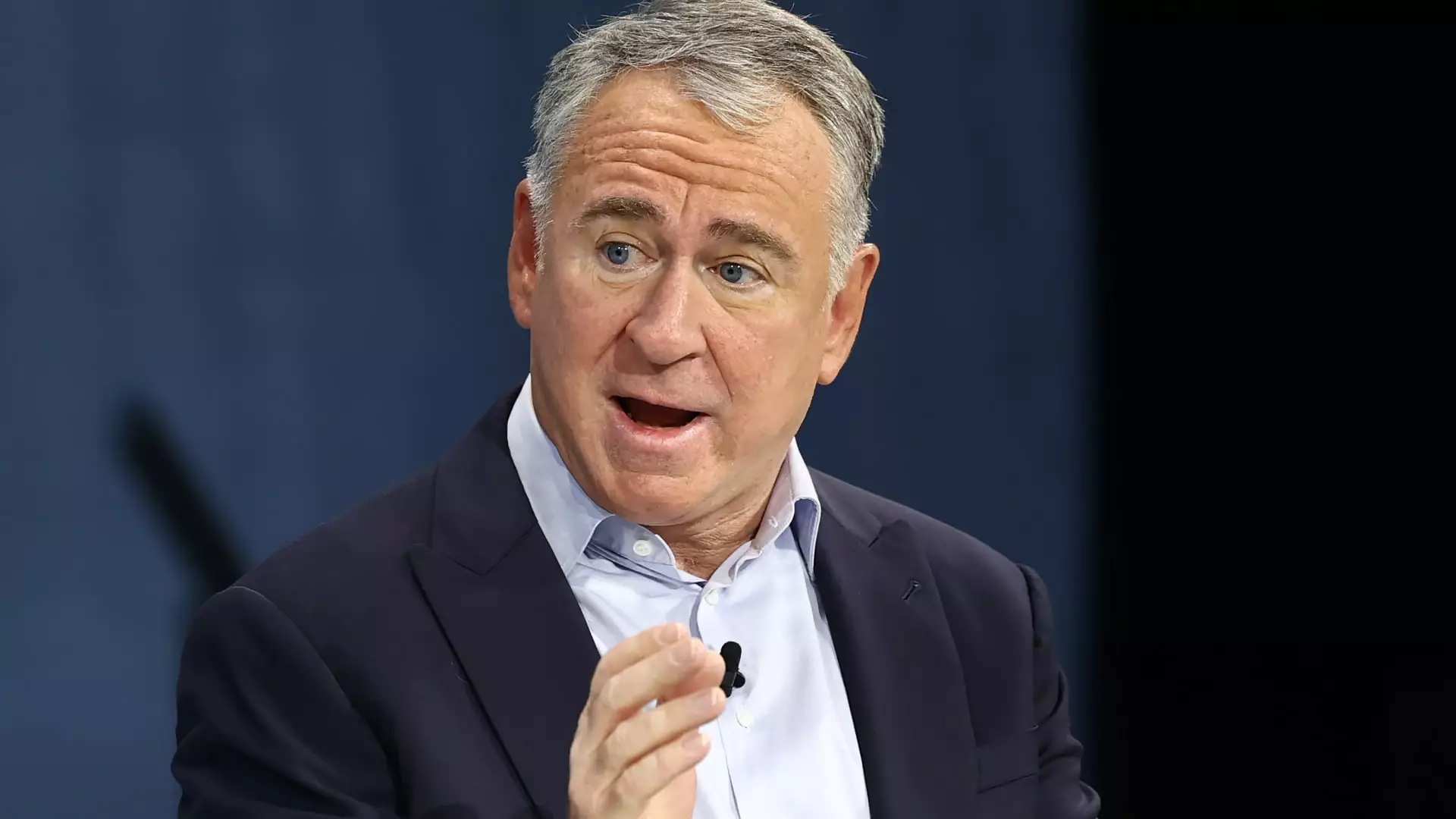Ken Griffin, the CEO of Citadel, recently voiced significant concerns regarding the harmful repercussions of President Donald Trump’s aggressive trade policies. His remarks, delivered at the UBS Financial Services Conference in Key Biscayne, Florida, underscore a critical view held by many in the business community regarding the president’s confrontational approach to international trade. Griffin emphasized that the “bombastic rhetoric” associated with current U.S. trade policy has already caused damage, leading to uncertainty among corporate leaders and policymakers alike. This sentiment echoes a broader anxiety about the stability of U.S. trade relationships, which are perceived to be under threat due to the current administration’s volatile strategies.
The recent implementation of a 25% tariff on steel and aluminum imports, along with a prior 10% duty on all Chinese imports, exemplifies the aggressive stance taken by the Trump administration. These measures have raised alarm bells among investors and multinational corporations, who now face a murky outlook for their long-term planning. Griffin, who has historically supported the president, highlights how the punitive nature of these tariffs can have dire consequences for investment strategies. The future of many businesses hangs in the balance as they grapple with the unpredictability of trade negotiations and the evolving landscape of international commerce.
Challenges for Multinational Corporations
Griffin articulates a key concern: the difficulty faced by multinational companies in making long-term capital investments. These corporations typically engage in extensive planning for the future that spans years or even decades, necessitating a stable and reliable trade environment. However, the current state of U.S. trade policy creates an atmosphere of discomfort and hesitation, making it arduous for business leaders to commit to substantial investments. With the prospect of changes to the existing trade agreements becoming increasingly likely, the fear is that this volatility will deter potential growth and innovation.
Another critical point raised by Griffin is the potential emergence of crony capitalism as a byproduct of these aggressive tariffs. This particular economic system is characterized by the intertwining of business and government interests, often leading to inefficiencies and corruption. As businesses vie for favorable treatment in a highly politicized environment, there’s a risk that vital resources will be diverted away from innovation and improvement, ultimately stymying economic progress. Griffin’s observation serves as a cautionary tale about the intricate dynamics of business and governance and the need for a balanced approach that prioritizes long-term stability over short-term gains.
Ken Griffin’s warnings highlight the pressing issues stemming from a combative approach to U.S. trade policy. As corporate leaders and investors confront an uncertain future fueled by high tariffs and unpredictable rhetoric, the need for a more collaborative and transparent trading environment has never been more apparent. The ongoing dialogue surrounding these policies will play a crucial role in determining the trajectory of the U.S. economy and its relationships with key trading partners. Without a shift towards more constructive negotiations, the possibility of enduring harm to American businesses and global cooperation looms large.

